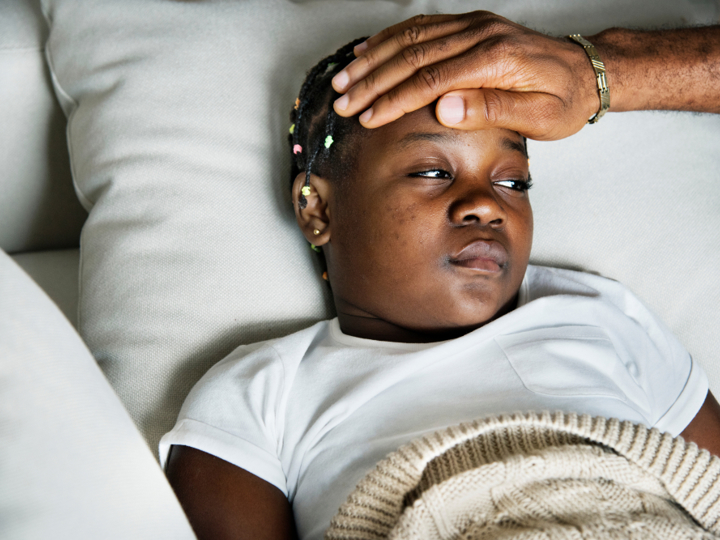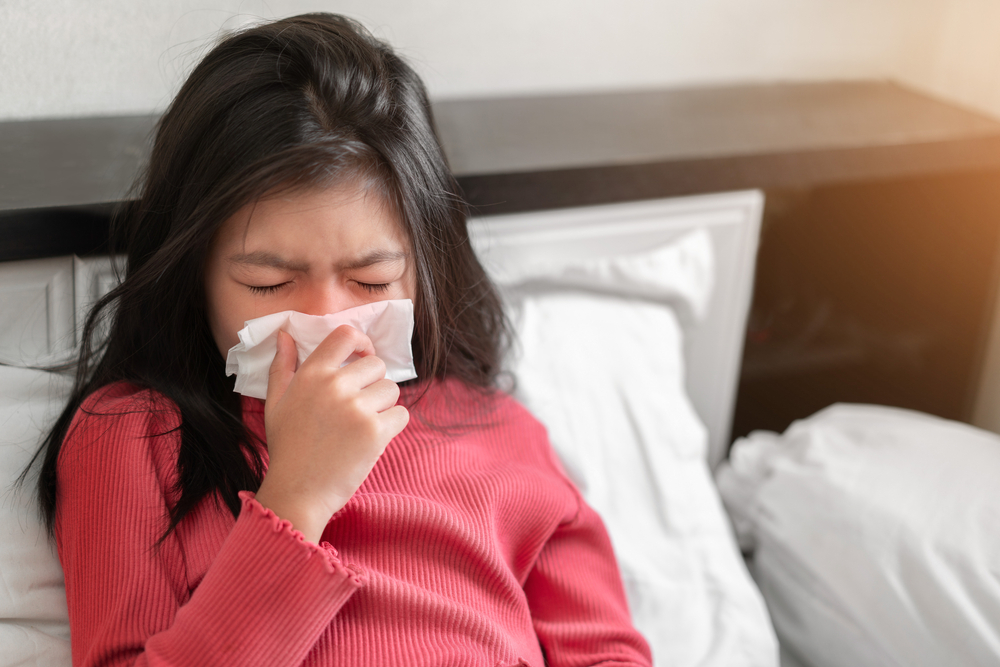Caring for a sick child
- 0-1 Years
- 1-5 Years
- 5-11 Years
- 11-19 Years
- SEND
- Parents and Carers
- Common illnesses

It can be a worrying time as a parent when your child gets sick. But, most minor childhood illnesses can be treated at home. There is often a lot you can do at home to help your child feel better.
Explore the topics on this page:
What you can do at home to help
Common signs to look out for
Babies and very young children can’t always tell you what is wrong. Some common signs to look out for include:
-
becoming more irritable
- crying more than usual
- a very high or low temperature
- being unusually quiet
- changes in their sleep pattern and appetite
- less heavy wet nappies (this is a sign of dehydration)
If your baby is crying and you are finding it hard to cope, read our information on caring for your crying baby - ICON.
The Baby Check App features 19 different symptom checks you can do to check for illness in your baby. You can download it for free on Google Play Store or the App Store.
To learn about the different childhood illnesses, read our information on common illnesses.
If you are unsure if your child is seriously ill, you can call 111 or speak to your GP for advice. You know your child best. If you think your child is seriously unwell call 999 for an ambulance or go to your nearest A&E department.
It can be harder to tell if your baby or toddler is seriously ill. Remember to trust your instincts. Read more about if your baby or toddler is seriously ill.

What you can do at home to help
- Offer your child small healthy snacks and regular drinks. This will help stop them becoming dehydrated.
- Allow your child to have time for quiet games and stories but encourage them to get plenty of rest.
- Your child may prefer lying on the sofa with a blanket, rather than in bed.
- Keep your baby close to you and offer lots of cuddles. Remember that the safest place for them to sleep is always in their own bed. Read our advice on keeping your sleeping baby safe.
- If they are breastfeeding, continue to offer breastfeeds regularly to avoid dehydration. Breast milk also contains antibodies that help protect your baby against illness.
Some minor illness such as coughs, colds, or tummy upsets can spread very easily. Read our information on stopping germs from spreading.
Giving your child medicine
A lot of minor illnesses, like coughs and colds, do not need medication. But, it is safe to give paracetamol and ibuprofen to treat pain and a high temperature in children and babies over 2 months old. Both are available as liquid medicines for young children.
Check the label for the correct dose, and make sure you get the right strength for your child’s age. If you are unsure you can speak to your pharmacist for advice. They will also be able to tell you if your child needs to see a GP.
If your child has asthma, check with your GP or a pharmacist before giving them ibuprofen. Do not give aspirin to children under 16.
Taking your child's temperature
When babies and children are ill they often have a high temperature. This is sometimes called a fever. If your child is hot to the touch you can remove some of their clothes. Avoid under or over dressing them.
Use a digital under arm thermometer for children 0 to 5 years old. Ensure the thermometer is touching the skin. Tympanic (ear) thermometers can be used in children over 4 weeks old, but they must be inserted correctly.
Children 5 years or older can have their temperature taken orally. You can do this by taking a reading in their mouth, under their tongue.
Last reviewed: 1 November, 2023
